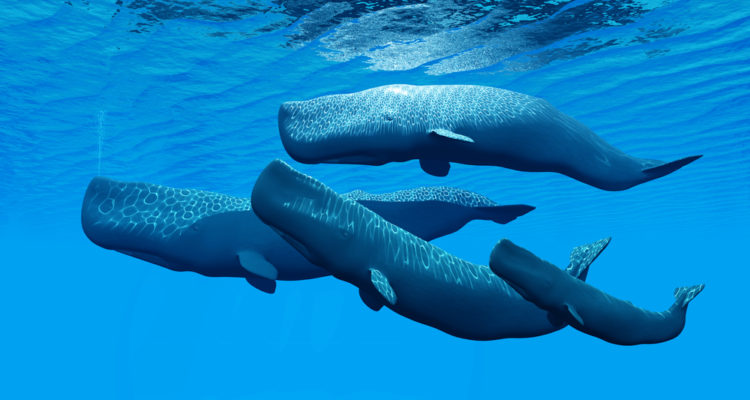The project seeks to provide the first-ever blueprint of another animal’s language.
By Sharon Wrobel, The Algemeiner
Leading scientists and researchers from Israel, the U.S. and the UK are joining hands on a multi-year project to try and decode how the highly intelligent sperm whales speak with each other, in an “unprecedented” project to better understand the large sea creatures.
The University of Haifa revealed on Tuesday details of the five-year study, in which it will work together with other institutions such as The City University of New York (CUNY), Harvard University, Massachusetts Institute of Technology (MIT), Imperial College London, and UC Berkeley.
The project — the Cetacean Translation Initiative (CETI) — will take place in Dominica, in the Caribbean, and seeks to provide the first-ever blueprint of another animal’s language by using advanced machine learning and state-of-the-art, non-invasive robotics.
“These primates make a clicking sound at varying frequencies when they are in the company of other whales. The question is, is this just a simple code or a true language?” said Prof. Dan Tchernov of University of Haifa’s Leon H. Charney School of Marine Sciences and Scientific Director of The Morris Kahn Marine Research Station.
“Right now, our database is not comprehensive enough to know the answer to this question,” he continued.
“However, with the advancement of machine learning, and advanced linguistics, we realized that if we gathered enough data about their voices, the context in which these sounds are employed and understood and their behavior and motivation behind these sounds, we can then develop an algorithm which will determine whether they have an authentic language.”
According to the CETI project, the sperm whale is the animal with the largest brain, and like humans, it has a complex communication system and lives in tightly knit family groups.
The other two University of Haifa researchers joining the project are Dr. Roee Diamant of the Marine Sciences Department, who will be the project’s lead acoustic adviser and in charge of placing the world’s most advanced marine mammal listening and localization array, and Dr. Bracha Nir, Head of the University’s Department of Communication Disorders, who will investigate mother and calf communication themes.





